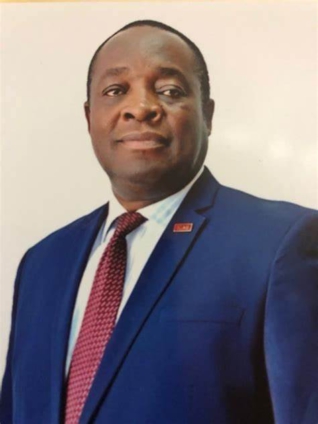The Public Interest and Accountability Committee (PIAC) is kicking against the use of the Annual Budgeting Funding Amount in filling expenditure gaps in times of revenue shortfall in the budget.
According to PIAC, the practice is rather the purpose of the Ghana Stabilization Fund.
As part of its recommendations captured in the 2020 Annual Report, it said “as detailed in the Committee’s 2019 Annual Report, the Committee reiterates that the ABFA should not be spread thinly, in accordance with Section 21 (1-3) of the PRMA."
Other recommendations by the report are the need for the Ghana Revenue Authority as a matter of urgency, initiate action to recover Surface Rental Arrears with the appropriate interest, as provided for in the Petroleum Revenue Management Act as well as the Ministry of Finance ensuring that priority areas selected are approved by Parliament before implementation, as required by Section 21 (5) of the PRMA.
The rest are the need for a Long-term National Development Plan as stipulated in Section 21 of the Petroleum Revenue Management Act to guide the spending of petroleum revenues instead of resorting to the fallback position of Ministerial discretion in the selection of priority areas as well as the call for necessary gas infrastructure needs to be put in place by government to ensure that the make-up gas from SGN is taken and utilized.
Key findings
On the key findings, PIAC urged the Ghana Revenue Authority to as a matter of urgency, initiate action to recover Surface Rental Arrears of a little above US$2 million with the appropriate interest rate. 18 companies that are exploring oil in the country are currently indebted to the country, and the arrears keep accumulating.
“GNPC utilised a make-up gas volume of 1,867.50Mmscf out of the total accumulated make-up gas volume of 35,630.32Mmscf, translating into an amount of US$15.76 million. The 2020 – 2022 priority areas selected for ABFA disbursement were not presented to Parliament for approval in the 2020 Budget Statement and Economic Policy, as required by the PRMA”, the report added.
Also, contrary to the PRMA, an unutilised amount of GH¢827.60 million from 2017 – 2019 was spent to partially meet the shortfall in ABFA receipts caused by the impact of the COVID-19 pandemic and its associated effects on crude oil prices globally.
Summary
The report is the 10th since oil production began in 2020.
Ghana has so far recorded US$6.5 billion from oil production.
Since its establishment in September 2011, PIAC has exercised its oversight responsibility of monitoring and evaluating the management of Ghana’s petroleum resources by government and stakeholders.
In 2020, the nation bagged US$638.8 million from production. This is compared with US$925 million in 2019.
Latest Stories
-
Syria’s minorities seek security as country charts new future
31 minutes -
Prof. Nana Aba Appiah Amfo re-appointed as Vice-Chancellor of the University of Ghana
38 minutes -
German police probe market attack security and warnings
38 minutes -
Grief and anger in Magdeburg after Christmas market attack
39 minutes -
Baltasar Coin becomes first Ghanaian meme coin to hit DEX Screener at $100K market cap
1 hour -
EC blames re-collation of disputed results on widespread lawlessness by party supporters
2 hours -
Top 20 Ghanaian songs released in 2024
2 hours -
Beating Messi’s Inter Miami to MLS Cup feels amazing – Joseph Paintsil
2 hours -
NDC administration will reverse all ‘last-minute’ gov’t employee promotions – Asiedu Nketiah
2 hours -
Kudus sights ‘authority and kingship’ for elephant stool celebration
3 hours -
We’ll embrace cutting-edge technologies to address emerging healthcare needs – Prof. Antwi-Kusi
3 hours -
Nana Aba Anamoah, Cwesi Oteng special guests for Philip Nai and Friends’ charity event
3 hours -
Environmental protection officers receive training on how to tackle climate change
3 hours -
CLOGSAG vows to resist partisan appointments in Civil, Local Government Service
4 hours -
Peasant Farmers Association welcomes Mahama’s move to rename Agric Ministry
4 hours

